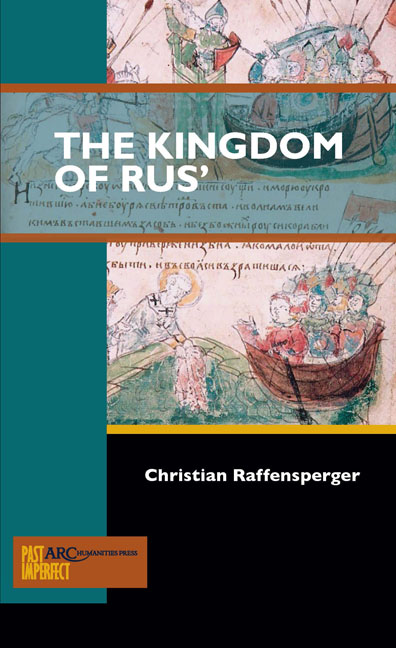Book contents
- Frontmatter
- Dedication
- Contents
- Acknowledgements
- Timeline of Events
- Introduction: The Problem with Names
- Chapter 1 The Place of Rus’ in Europe
- Chapter 2 The Historiography of the Translation of Kniaz’
- Chapter 3 Titulature and Medieval Rulers
- Chapter 4 What Was a Kniaz’?
- Chapter 5 Medieval Titulature and Rus’
- Chapter 6 Titles for Other Medieval Rulers in Rusian Sources
- Conclusion: Consequences and Resolution
- Further Reading
Chapter 3 - Titulature and Medieval Rulers
Published online by Cambridge University Press: 14 January 2021
- Frontmatter
- Dedication
- Contents
- Acknowledgements
- Timeline of Events
- Introduction: The Problem with Names
- Chapter 1 The Place of Rus’ in Europe
- Chapter 2 The Historiography of the Translation of Kniaz’
- Chapter 3 Titulature and Medieval Rulers
- Chapter 4 What Was a Kniaz’?
- Chapter 5 Medieval Titulature and Rus’
- Chapter 6 Titles for Other Medieval Rulers in Rusian Sources
- Conclusion: Consequences and Resolution
- Further Reading
Summary
Titulature has actually long been a problem with translating (both literally and metaphorically) the Middle Ages for the modern world. The meanings and uses of titles change over time, titles are appropriated from others, and our modern understanding of titles is actually rather limited. Living in a twenty-first century world where kings, queens, and nobility are quite rare in one's daily life has generated a lack of understanding of the nuances of titulature and instead created set notions of the meaning of words like “king” as a monarch, a sole ruler over a territorial realm. Attempting to unpack such a concept often leads to a world of false parallels and equivalencies that affect both our analysis and our understanding of the medieval world. However, I would argue that such investigations are important. We need to delineate specific terms and concepts to better understand the medieval world on its own terms. To contextualize the difficulties of working on Rusian titulature and its complexities, examples will be shown from various areas of medieval Europe to highlight the issues inherent in translating medieval rulership.
Late Antiquity
Patrick Geary has written about the issue of historical perception in regard to how Romans viewed those on their borders. The Romans seem to have been realistic in their appraisal and titulature of their neighbours, especially their enemies, but still attempted to understand the “barbarians” on Roman terms and fit them into a Roman Weltanschauung or world view. (This could be contrasted with the Byzantines who often retained self-consciously archaic terminology for their neighbours, which may have affected their perceptions.) For instance, when the Alamannic confederation attacked in the mid-fourth century they were “led by an uncle and nephew termed ‘the most outstanding in power before the other kings,’ five kings of second rank, ten regales, and a series of magnates.” Here we have a nice enumeration of the leadership pyramid of a “barbarian” confederation that also serves quite well to express the problem of translating titulature. There is, in fact, no monarch, but a dual leadership structure, and these two are also implicitly termed kings.
- Type
- Chapter
- Information
- The Kingdom of Rus’ , pp. 31 - 42Publisher: Amsterdam University PressPrint publication year: 2017



